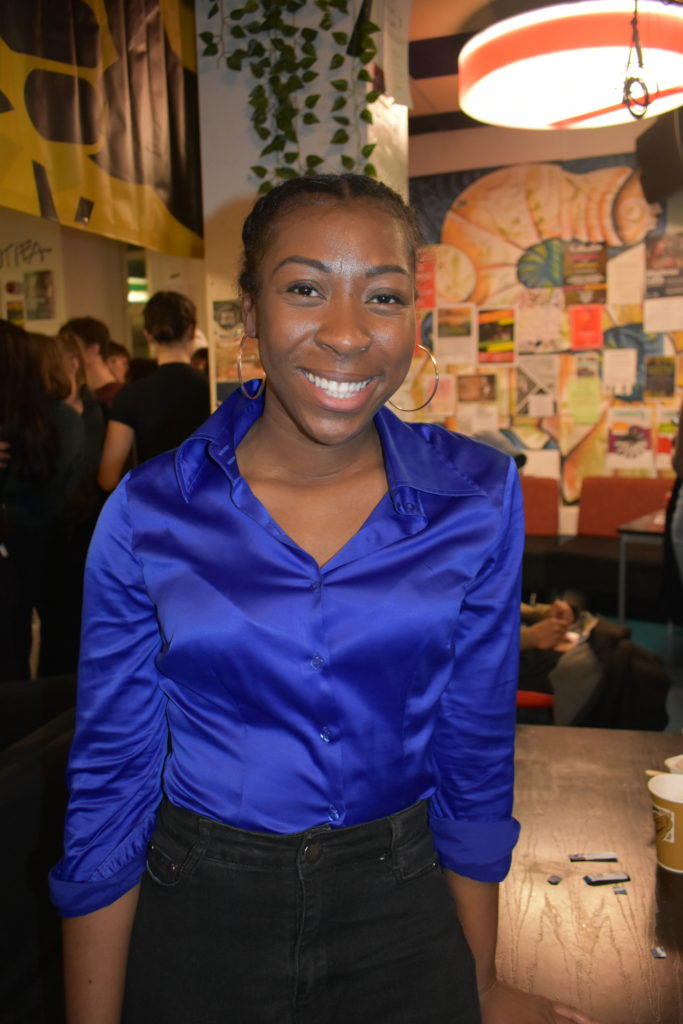Students Union Election Low Down

For this year’s election campaign, The SOAS Spirit provided coverage of all the major moments. We filmed hustings, interviewed candidates, and live-streamed the results. In this Features piece, we have brought together all the highlights from this year’s election.
Voter turnout:
This year: 1364
2018 (last year): 1207
Record turnout: 1920
Interviews with your Selected Candidates – Interviewed by Jude Omidiran
What are your three greatest priorities for next year?

Maxine Thomas-Asante, co-president for Democracy and Education
One of my priorities is definitely going to be addressing the issue of how to balance protecting students while maintaining freedom of speech. I want to hold workshops and debates to formulate solid SU policy.
A second priority will be to challenge department heads and management on the evident stripping of courses on Africa from the LEP programme, core modules
Peadar Connolly-Davey, co-president for Activities and Events
Increasing student participation in societies and SU events by working to make them more inclusive and by reorganising the SU website and notice boards to help societies distribute information about their meetings and other events.
Have bigger and better themed months like Black History Month, Queer History Month, Women’s history month etc. If elected, I will make sure to start working with the student body to organise these months/weeks as soon as possible so we can make some great events.
To ensure that all students voices are heard by listening to what the students body have to say. I will have an online suggestions box for events and activities.

Youssra El-Maghboul, co-president for Equality and Liberation
Making Activism Accessible: Having been in the office for 7 months now, I have been surprised at how many students want to get involved with campaigns and liberation movements at SOAS but feel that they don’t have the knowledge or the language to do so. That’s why I want to create a ‘Jargon Buster’ which would be a centre of knowledge and terms. This is not to say that resources don’t already exist online but having a place where all students can go creates a culture of accountability as people cannot feign ignorance when being problematic but also inclusivity as everyone at least has the same base level of knowledge.
Complaints: Having introduced an anonymous reporting tool this year, I think it important to keep pushing on reforming the complaints system. I would like to see all instances of
Fresher Workshops: Introduce Decolonising Workshops for freshers, as it is clear that is not just academics who are guilty for microaggressions in the classroom. Our ‘Enough is Enough’ workshops need a massive content review and overhaul as well as to finish the work we have become to make them genuinely mandatory.

Valeria Racu, co-president for Welfare and Campaigns
First of all, to continue the work students in the Art and the African Mind society have started and
Second, finally acknowledging and tackling the SU’s and SOAS’ incompetence in dealing with gender-based violence, as the Account for This campaign has been calling out during the last months. This is part of a broader need to improve the way our institution deals with complaints and disciplinaries, as the protocols and available support for different scenarios are blurry and non-accessible, which ends up leaving students unattended and coping by themselves most of the times.
Thirdly, to make the SU as accessible, approachable and representative as possible, being an actual union that supports its members and fights collectively for the improvement of our rights and conditions. In my opinion, this would be possible by increasing our visibility as representatives, and the access students have to our resources, information and support.





